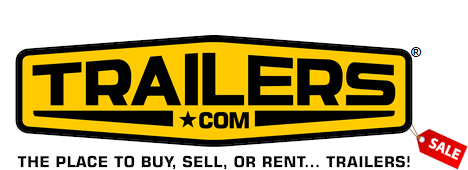
 |
New York Trailer Laws & Trailer Regulations
New York's laws and regulations for trailers are listed below:
New York Trailer Brake Laws
Every trailer and semitrailer weighing more than 1,000 lbs. unladen and every trailer and semitrailer manufactured on or after January 1, 1971, having a registered maximum gross weight or an actual gross weight of more than 3,000 lbs. shall be equipped with adequate brakes in good working order.
New York Trailer Dimension Laws
Total length: 65 feet (includes bumpers); trailer length: 48 feet (includes bumpers); width: 96 inches (102 inches allowed on certain designated roads); height: 13 feet 6 inches.
New York Trailer Hitch and Signal Laws
Device of a type approved by Commissioner of Motor Vehicles. Each approved towing system must include safety chains. Ball hitch mounted on bumper permitted.
New York Trailer Lighting Laws
Taillights, brake lights, license plate lights, and turn signals required. On a combination of vehicles the rear signal lamp must be at the rear of the last vehicle in the combination.
New York Trailer Mirror Laws
Every motor vehicle, when driven or operated upon a public highway, shall be equipped with a mirror or other reflecting device so adjusted that the operator of such vehicle shall have a clear and full view of the road and condition of traffic behind the vehicle.
Every motor vehicle when driven or operated on a public highway, that has a model year after 1968, shall be equipped with a side mirror which shall be affixed to the left outside of such vehicle and which shall be adjustable.
New York Trailer Speed Limit Laws
Same as passenger cars/trucks.
New York Trailer Towing Laws
No vehicle shall be towed with the use of a dolly, unless the dolly is secured to the towing vehicle by safety chains or cables which will prevent the dolly from separating from the towing vehicle.
It is unlawful to operate any open truck or trailer transporting loose materials, unless the truck or trailer has a cover, tarpaulin, or other device that covers the opening on the truck or trailer to prevent the falling of any material. However, if the load is arranged so that no loose material can fall from or blow out of the truck or trailer, the covering is not necessary.
|
|
|
Disclaimer: The United States Trailer Laws and Regulations by State by Trailers.com is not an inclusive list of laws, regulations and it should be used by reference only and not used for any other purpose. Trailers.com is not liable for incorrect or incomplete information. To report an error, incomplete or incorrect information, please send an email to statelaws@trailers.com. |